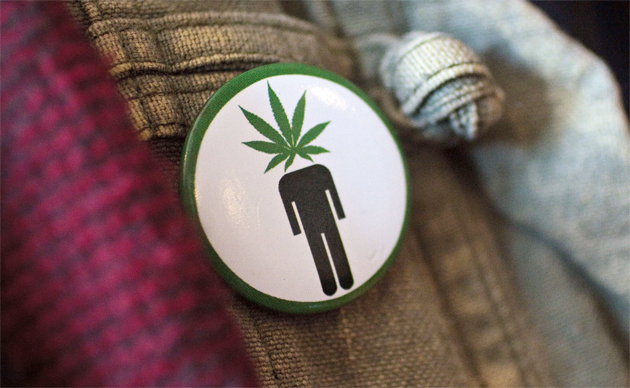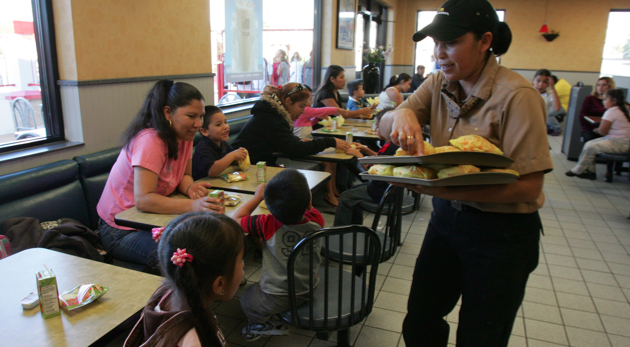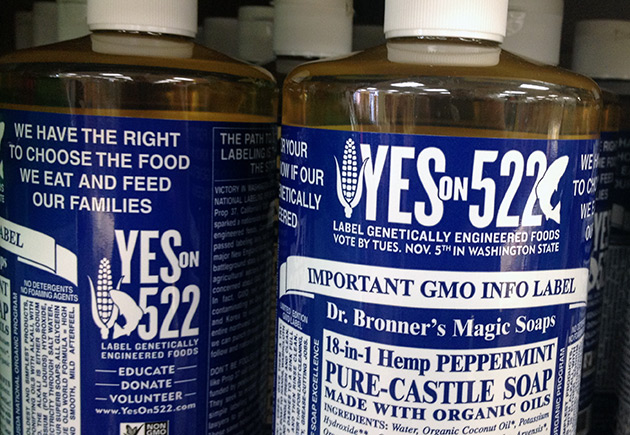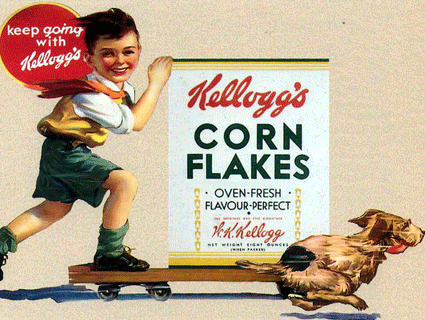
Werner R. Slocum/ZUMA
Last year, people in 38 states weighed in on 174 ballot measures questions. Today, just six states are putting such questions in front of voters, and the 31 items up for decision are a motley bunch, ranging from the bizarre (storage and taxation of airplane parts, anyone?) to more hot-button topics. Here are some of these state-level issues that may end up having larger national implications.
Put a GMO label on it (Washington)
Both sides have already poured nearly $30 million into Washington’s fight over whether to label foods containing genetically modified organisms. While 25 other states have considered similar legislation, the vote could make Washington the first to pass a such a requirement. Poll watchers aren’t certain which way this one will go: a KING 5 News survey released two weeks ago showed 45 percent of respondents in favor of GMO labeling and 38 percent opposed, with a full 16 percent pleading uncertainty.
Tax tokers (Colorado)
After Colorado’s approval one year ago of a measure to legalize recreational marijuana use, the state now wants pot users to cover the costs of overseeing the new industry. Proposition AA would add a 15 percent excise tax and a 10 percent sales tax to marijuana sales, meant to pay for retail regulation of the drug as well as some school construction. The measure seems likely to pass, having drawn 77 percent support in an April poll. That hasn’t stopped proponents of low-tax weed from throwing free joint parties in protest.
Supercharge schooling (Colorado)
This ballot measure would raise taxes by nearly a billion dollars to overhaul education, by increasing teacher pay, charter school funding, and money for early childhood development and English-language programs. The measure has the support of Gov. John Hickenlooper and many prominent state Democrats; opponents include the current Republican state treasurer and the subtly named Coloradans Against Unions Using Kids As Pawns. The initiative’s passage hinges on whether voters can stomach the tax increase in a still-rough economy: 44 percent of voters opposed the measure in a September poll; even more people (52 percent) said they would oppose after hearing how much individual tax rates would increase.
Raise the minimum wage (New Jersey)
After a veto from Gov. Chris Christie, New Jerseyans will decide whether or not to raise the minimum wage from $7.25 to $8.25, and set up a system of annual automatic cost-of-living increases. Despite Christie’s popularity, 76 percent of state residents—including many registered Republicans—favor the increase, according to a Rutgers University poll from September. California and Minnesota recently passed minimum wage increases of their own, while South Dakota voters will decide one next year.
Screw Atlantic City (New York)
Gambling conglomerates and New York state Democratic leaders, including Gov. Andrew Cuomo, are hoping voters will amend the constitution to allow seven Vegas-style casinos, with four upstate and three in the Big Apple. The initiative comes a year after Maryland’s passage of a measure to expand gambling, which drew a record $90 million in campaign spending. New York’s fight won’t be nearly as expensive—the main committee in favor has raised just north of $2 million, while those opposed have raised almost nothing. (What opponents lack in funds they make up for in sledgehammer stunts.) Still, it’s a rare issue that has managed to unite the editorial boards of both the New York Times and the New York Post—both are opposed.
















